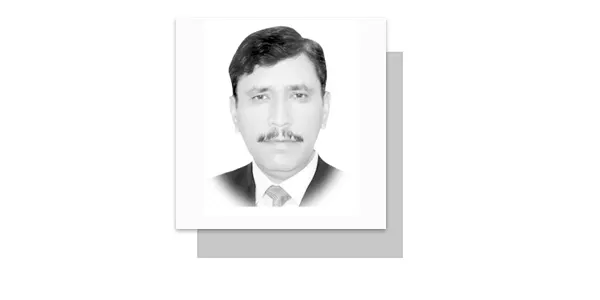IN the realm of modern political science, it is a challenging task to encapsulate the profound sufferings and afflictions endured by the people of Pakistan who find themselves ensnared in a society where their inherent liberties have been subjugated by the relentless greed of powerful factions. The very essence of patriotism has been eroded and the discourse on civil rights has been regrettably sidelined. The vestiges of colonial-era laws are wielded as weapons to suppress freedom of expression and, consequently, the right to protest.
The economic landscape paints a grim picture with dwindling revenues, primarily allocated to servicing internal and external debts. This raises an ominous question: How will the nation fund its defence, meet current expenditures and foster development? Instead of addressing these pressing issues, political parties that have held sway over the country’s governance since the 1990s engage in a blame game, perpetuating the status quo.
The economic woes plaguing Pakistan have been exacerbated by a series of ill-advised policies pursued by the coalition government, majorly comprising dynastic parties that ruled the country for one and half year recently. One of the most glaring examples of these policies was their attempt to rectify the growing trade deficit through costly electricity bills and petroleum development levy, rather than implementing essential tax reforms. This misguided approach has not only strained the finances of ordinary citizens but also deepened the economic challenges facing the nation.
Imposition of additional taxes has fuelled public discontent and protests, highlighting the urgent need for comprehensive economic reform. Citizens are demanding not only relief from the burden of high energy costs but also greater accountability, an end to elite privileges and measures to stabilize the rupee and mitigate inflation. Addressing these concerns is vital to restoring economic stability and fostering a more equitable society in Pakistan. It requires a shift in policy priorities towards the welfare of the people and away from the interests of the elite.
The tragedy is that the people are crying out for justice, yet their pleas often fall on deaf ears. The accountability process is either paralyzed or selectively employed to quell opposition voices. The ascendant elite classes, remnants of the colonial era, have effectively fragmented society into disparate strata, erasing the notion of collectivity. The ruling elites habitually act against the broader public interest, whether it pertains to creating the institutional framework necessary for safeguarding fundamental rights or upholding the rule of law.
Although constitutionally obligated to establish a system of politically, administratively and financially autonomous local governments, successive civil administrations have failed to do so, hindering the equitable distribution of resources and sustainable development. General elections loom large on the horizon, yet the largest province, Punjab, remains deprived of a functional local government system. The primary focus of political parties, which predominantly represent the interests of the powerful elite, is to expedite general elections and secure their positions of power through hook or crook. This strategy deflects from the urgent need for comprehensive economic and institutional reforms.
It is evident that democracy stands as the only viable solution to extricate the country from its current crisis. However, the success of democratic governance hinges on its ability to prioritize the interests of the people over those of the self-serving elite. There is a need to foster an environment where accountability mechanisms are robust and impartial. This requires depoliticizing accountability institutions and ensuring their independence. Electoral reforms are imperative to guarantee fair and transparent elections and the reinstatement of local governments in Punjab is a crucial step toward decentralizing power and resources.
Rather than relying on unsustainable practices, Pakistan should prioritize comprehensive tax reforms to broaden its revenue base. Encouraging investment in key sectors, such as agriculture and industry, can stimulate economic growth and job creation. Efforts to combat corruption and promote good governance are integral to economic stability. Prioritizing education and healthcare is vital to fostering social development. A well-educated and healthy population is better equipped to participate in the workforce and contribute to the country’s growth. Ensuring access to quality education and healthcare services should be a cornerstone of social policy. The local governments, as mandated by the Constitution, are vital for the delivery of these essential services.
Upholding the rule of law is non-negotiable for a functioning democracy. Pakistan must actively work to repeal or amend colonial-era laws that infringe upon civil rights and suppress freedom of expression. Protecting and promoting civil liberties and human rights should be central to the nation’s legal framework. There is need to redefine and reinvigorate the concept of patriotism. It should be rooted in the collective well-being of all citizens, transcending class divisions and promoting national unity. Public discourse should encourage civic engagement and national pride grounded in shared values and goals. Needless to say, the nation’s destiny lies in the hands of its leaders and citizens who prioritize the welfare of the people over the interests of the elite. Embracing these reforms and rekindling the spirit of democracy can pave the way for a brighter and more equitable future for Pakistan.
—The writer is politico-strategic analyst based in Islamabad.
Email: [email protected]










